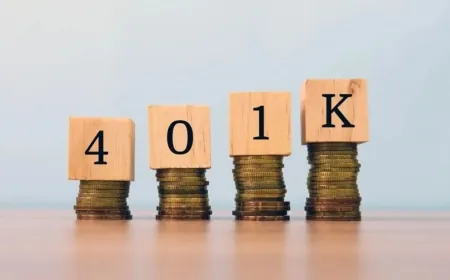The Richness Puzzle: Why $100,000 Earners Don't Always Feel Wealthy
why six-figure earners may not feel wealthy, addressing lifestyle creep and social comparison. Expert tips on managing finances, curbing expenses, and building long-term wealth.

Right after completing my college education in 2013, I secured my first professional position in journalism as an intern at a prominent personal finance magazine situated in Washington, D.C. Although I had limited knowledge about the subject matter, I had to swiftly adapt because the internship offered a mere compensation of $12 per hour. To supplement my income, I took on additional work as a waiter/waitress.
Shortly afterwards, I was offered a full-time position at the magazine, and throughout my twenties, I diligently applied the financial wisdom I had gained from the publication. Despite my salary not surpassing $50,000 until my seventh year, I remained committed to saving, budgeting wisely, and making strategic investments. The thought of reaching a $70,000 income lingered in my mind as the threshold that would relieve me from constantly worrying about finances.
And reaching the milestone of $100,000, I reasoned, would signify true wealth or, at the very least, a comfortable lifestyle - the kind that affluent individuals refer to as "rich."
However, the actuality for those earning six-figure incomes is not as bright as I had previously imagined. Surprisingly, over half of Americans who earn more than $100,000 annually find themselves living paycheck-to-paycheck, as revealed by a recent study conducted by PYMNTS and LendingClub.
Upon graduating from college, I held grand expectations regarding my income potential. However, fast forward approximately six years later to my current situation, where I earn slightly over six figures, and it falls short of my initial vision," reflects Jesse Whitsit, a certified financial planner and portfolio manager at Morgan Stanley in Hauppage, New York. "I had envisioned being able to save significantly more than my current reality allows."
Is a $100,000 salary synonymous with being 'rich'? Well, that answer varies
Earning an annual income exceeding $100,000 would indeed position an individual comfortably ahead of the median American household, which currently stands at $74,784 as of 2021. In terms of various definitions set forth by institutions like Brookings, Urban Institute, and Pew Research, such a salary would categorize one as part of the upper class, especially for individuals without dependents.
However, the paradoxical reality emerges as many individuals in the United States, despite earning six-figure incomes and technically belonging to the upper class, still experience a sense of financial uncertainty. This phenomenon cannot be solely attributed to extravagant spending or poor money management. The high cost of living in coastal cities, where many lucrative job opportunities are concentrated, can be overwhelming. Additionally, the burden of student loans, often necessary to qualify for high-paying positions, adds another layer of financial pressure.
Furthermore, the impact of inflation should also be taken into account when evaluating the perceived wealth of individuals in this income bracket.
Based on data from the Bureau of Labor Statistics, in order to maintain the same purchasing power that a $100,000 salary held just a decade ago, one would need to earn approximately $129,000 today. This is due to the average annual inflation rate of around 2.6% between 2013 and the present, resulting in a cumulative rate of approximately 29%.
The extent to which your income stretches depends significantly on your cost of living, which is influenced by factors such as lifestyle, household size, and, notably, location. It is evident that earning $100,000 in New York City differs greatly from earning the same amount in Memphis, Tennessee.
The disparity may be even more pronounced than one might expect. Thanks to the absence of state income tax in Tennessee, a Memphis resident earning $100,000 would take home $74,515 after federal and state taxes, according to SmartAsset's analysis. Moreover, with the city's cost of living sitting 14% below the national average, the adjusted value of that income would equate to approximately $86,444.
Conversely, due to a combination of federal, state, and local taxes, coupled with the exorbitant cost of living, a $100,000 salary in New York City is effectively worth approximately $35,791, as revealed by SmartAsset's findings.
Enhancing the Value: Amplifying the Impact of $100,000 for a Meaningful Financial Journey
One of the reasons individuals earning six-figure salaries may not perceive themselves as wealthy is due to lifestyle creep, a phenomenon where non-essential expenses tend to increase alongside income. Brad Klontz, a Certified Financial Planner (CFP) and financial psychology professor at Creighton University, acknowledges the challenge of avoiding this trend.
"Our inherent nature of social comparison drives us to closely monitor our status within a group," he explains. "Given that most Americans save very little and tend to overspend, resisting lifestyle creep requires going against our biological programming."
According to Jesse Whitsit, people often succumb to the temptation of immediately spending any raise or bonus they receive, potentially erasing the opportunity for additional savings. Whitsit advises his clients to wait at least six months before making significant purchases after a salary increase or bonus.
However, many individuals unknowingly fall into the trap of lifestyle creep without realizing it. Making unconscious decisions like opting for Uber rides instead of taking the bus may not be as flashy as purchasing a boat, but it can still have a substantial financial impact.
The key to curbing lifestyle creep, according to Klontz, is to be consciously aware of its occurrence. He emphasizes the importance of the concept of "paying yourself first." This involves determining a specific percentage of your income that needs to be saved to achieve your financial goals and setting that money aside before allocating funds for discretionary spending.
Klontz asserts, "Once you have set aside that money, concerns about lifestyle inflation become less significant."
However, if you are already saving a high percentage of your income, it might prevent you from feeling more financially secure. While you may have only been able to save a small amount when you earned a lower salary, now that you are earning six figures, you may be setting aside as much as 20%.
This is a positive situation to be in, as regularly investing your savings means you are on the path to building wealth, as highlighted by Ramit Sethi, a self-made millionaire and featured on Netflix's "How to Get Rich."
"The most underestimated money habit is patience," Sethi advises. "True wealth creation takes time."
In conclusion, being aware of lifestyle creep, saving consistently, and exercising patience are key factors in making the most of a six-figure salary and building long-term wealth.
Also Read: The Power of Money and the Mind: Exploring Behavioral Finance for Financial Insight































































